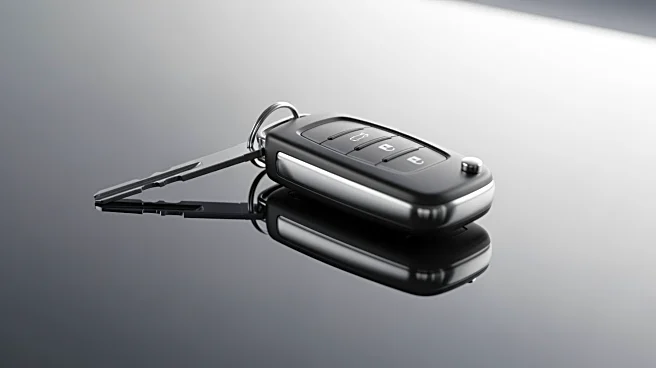What's Happening?
Volvo, known for its safety innovations, has been evaluated by Consumer Reports for its reliability. Historically, Volvo cars like the 1966 Volvo P1800 have been recognized for their durability, but recent
models have shown mixed results. Consumer Reports rated Volvo 15th in new-car reliability for 2025, with the Volvo XC90 and XC60 Plug-in Hybrid recommended despite scoring 42 out of 100 for predicted reliability. However, several Volvo models, including the XC90 and XC60, have been subject to recalls for issues like malfunctioning backup cameras and faulty brakes. Despite these challenges, the XC60 Plug-in Hybrid has shown strong historical reliability in specific areas like brakes and climate systems.
Why It's Important?
The evaluation by Consumer Reports is significant as it impacts consumer perception and purchasing decisions regarding Volvo vehicles. The recalls and reliability ratings could affect Volvo's market position, especially in the competitive SUV segment. While Volvo's reputation for safety remains strong, the reliability concerns may influence potential buyers to consider alternatives. The recommended models, despite their issues, highlight Volvo's continued efforts to innovate and improve its offerings. The findings also underscore the importance of addressing manufacturing and design flaws to maintain consumer trust and brand integrity.
What's Next?
Volvo may need to address the reliability issues and recalls to improve its standing in future Consumer Reports evaluations. The company could focus on enhancing the reliability of its electric and hybrid models, which are crucial for its strategy in the evolving automotive market. Additionally, Volvo might invest in better quality control and customer service to mitigate the impact of recalls. As the automotive industry shifts towards sustainability, Volvo's ability to produce reliable hybrid and electric vehicles will be critical for its long-term success.
Beyond the Headlines
The reliability issues faced by Volvo highlight broader challenges in the automotive industry, particularly in integrating new technologies like hybrid and electric systems. These challenges reflect the complexities of transitioning to more sustainable vehicle options while maintaining high standards of reliability and safety. The recalls also raise questions about the regulatory and quality assurance processes in place to protect consumers. As Volvo navigates these issues, it may influence industry standards and practices regarding vehicle reliability and safety.










